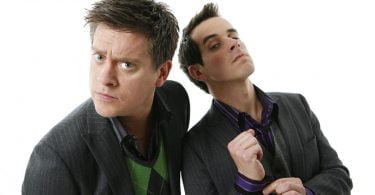Halimah Manan explores Channel 4’s new reality show, Hunted, and why it’s already so popular.
We live in a surveillance state, where the internet – the source of cat videos and a widely-acknowledged enabler of procrastination – and our usage of it, is monitored by our government. Not to mention, of course, the many companies who utilise our cookies to market products to us. What happens when these seemingly harmless features, which help our governments stop criminal activities, are used against 14 civilians-turned-fugitives? Why, Hunted, of course.
How it works
Channel 4’s new reality show, Hunted, employs a team of highly-skilled investigators to track 14 civilians who have chosen to go on the run for the purposes of a social experiment. Given only an hour’s notice that they have become fugitives, these 14 people will have to evade covert operatives, ex-CIA officers, and even former counter-terrorism experts, for a total of 28 days if they wish to be successful. (Yes, they’re all Jason Bourne, minus the amnesia, stack of passports and money, and, of course, the capacity to fight off hordes of gun-toting men.)
While the fugitives are trying to escape, the investigators start off armed only with a picture, name, date of birth and home address. Despite this, they quickly uncover more within hours. With the help of CCTV and license-plate-recognition software, it’s easy for the investigators to catch on to fugitives’ whereabouts. However, even when that trail has gone cold, the scope of information gained from trawling social media accounts, internet history and emails (not to mention how easy it is to access all of these ‘secure’ accounts) is startling.

Dr Ricky Allen is a GP from Canterbury
TV to relax and stimulate
With issues of privacy so close to the heart and individual rights on the internet at the forefront of people’s minds, after Edward Snowden blew the whistle on the National Security Agency (NSA), this is a reality show of an entirely different calibre. So, it begs the questions: why are we watching it? what makes Hunted so good? And will it transform the genre of reality TV forever?
To answer whether reality TV will be transformed forever, I think it’s safe to say that the Great British Bake-Offs, Strictly Come Dancings and Take Me Outs of the world are pretty safe. Although Hunted marks a new precedent for where reality shows can take us, plenty of reality shows exist to relax viewers, not terrify us, and there will always be a place for them.
However, considering the popularity of the show already, it is not unlikely that other producers will reflect upon this and take up similar premises for reality shows. Inevitably, then, it’s a mix: this certainly won’t be the last of Hunted-esque social experiments but it certainly won’t derail the success of other, more feel-good reality TV.

Harinder Singh hides out in the back of a shop
Appealing to our need to know
But the real question – why the show is popular at all – remains. While shows like Don’t Tell the Bride are probably popular because they depict a new type of wedding-planning and getting married is something various people can relate to, Hunted isn’t necessarily something people can relate to.
Even so, while we can’t relate to being on the run, exactly, Hunted highlights a very real concern regarding internet privacy and even the general powers the state has to find us at any given time. In the first episode alone, the show demonstrated not only how easy it is to break down even the most secure of passwords with the right information (one password to one account can give them access to everything) but also how investigators – or others – can come to understand us.
Social networks make us transparent and now we know exactly how even a handful of photos can be used against us.
Learning points so far from #Hunted: delete browsing history, put tape on your number plates, and don’t go on the run with a flakey friend.
— Clare Mackintosh (@claremackint0sh) September 10, 2015
Plus, while it may seem absurd, the idea that we might have to go on the run is not so far removed, whether for political or criminal reasons, and this also fuels the intrigue with the show. As much as this show is a game, the institutions, practices and equipment featured in Hunted are somewhat indicative of real life.
So, while most of us will have the good fortune of never being on the run, we could still relate to the emotional turmoil. And, as evidenced by Twitter, certainly come up with our own ‘fool-proof’ methods of evading investigators, not to mention our own kryptonite. Would it be our child, or mistakenly believing we’re safe only to find we’ve built up a very obvious pattern?
And, if investigators were trawling through our internet history, what would they find? Red herrings? All of those dodgy questions we’ve searched on Google? Or a pathway to our minds and next steps? The psychological element – how we all form patterns of behaviour – is where the real thrill comes from.
Really want one of the #hunted subjects to win by just hiding in their garden shed.
— Girl on the Net (@girlonthenet) September 10, 2015
Ultimately, then, beyond the vague similarities (and countless references on the internet) to the Bourne trilogy, Hunted makes for compelling TV because it is real. The powers of surveillance are not trumped up for the sake of fiction but genuine and used every day to track people, even when we’re doing nothing wrong.
With Hunted, there is no necessity for the suspension of disbelief. Everything about the show is ordinary, set in ordinary parts of the UK, and it’s so good because anyone could be in their place.
Episode 2 continues the hunt on Thursday 17th September, on Channel 4, at 9pm.








